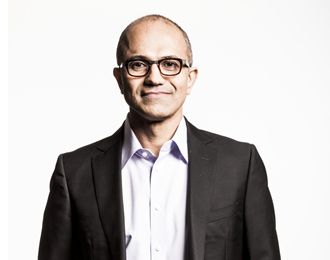 A new study indicates that more than 85 per cent of businesses plan to invest in digital transformation in 2018.
A new study indicates that more than 85 per cent of businesses plan to invest in digital transformation in 2018.
Digital engineering and IT outsourcing services outfit Virtusa has announced the findings of its The Digital Transformation Race Has Begun report which was commissioned by Virtusa and conducted by Forrester .
Virtusa global head of digital solutions Frank Palermo said:
“The Forrester Study confirms that while most companies are preparing to make digital transformation a priority, they have a long way to go before achieving any mastery over the multiple disciplines required to effectively innovate.
“Firms that are obsessed with their customer’s experience can achieve significant operational efficiencies and put innovation at the heart of their respective cultures and are the ones that will see the greatest benefits from digital transformation. In today’s business climate, with industries being disrupted at every turn, companies must be able to quickly change their products and processes to pivot to take advantage of new market opportunities. As the study finds, improving digital maturity will be key to meeting the changing needs of customers in an evolving marketplace.”
The study was generated with input from more than 600 digital transformation decision makers in Western Europe and North America to explore the state of digital maturity across six key industries. Respondents included C-level executives, vice presidents, and directors at companies with revenues ranging from $250 million to more than $1 billion.
The study deployed a digital transformation maturity index, examining firms’ innovation readiness and competency across these key industries in three areas: customer experience, operational excellence, and business innovation. In all three areas, firms fared slightly better in customer experience compared to operational excellence and business innovation.
The study identified five levels of digital transformation maturity firms could reach – Curious, Exploring, Deploying, Thriving, and Mastering – to best synthesise the data from the maturity index. On average, firms currently fall into the lower-to-middle range of the Deploying category (26.06 out of 45).
According to the study, currently, 85 percent of firms surveyed said they would increase the budget their company allocates for digital transformation next year, with 37 percent indicating the increase would be by 10 percent or more. Further findings from the study include the following:
Retail outperforms other industries across all three categories, setting the standard for creating innovative, digitally-driven customer experiences.
Banking firms are ease-of-use leaders, yet they face investment challenges, including slow economic growth, low-interest margins, increased regulation, and changing consumer expectations.
Healthcare companies traditionally lag behind other industries in adopting business technologies that help with customer engagement. This is tied to intense regulatory requirements leading to a significant focus on the security of customer data.
Insurance organisations are just beginning to digitally transform the complexity of products and services, legacy technology reliance, and risk-averse cultures all affect how fast insurers can move forward with their digital transformation journeys.
Telco firms are shifting to customer-centricity, driven in part by low customer satisfaction and disruption caused by over-the-top (OTT) providers.
Media companies have the most ground to cover in digital transformation. They also represent the group least likely to increase investment in digital transformation.
The study also recommends that firms be customer obsessed by building visions for winning over executive stakeholders, establishing baselines to construct digital transformation roadmaps, and putting innovation at the heart of their firms’ cultures to ensure greater digital transformation maturity.
The study says: “In the age of the customer, empowered, demanding customers can exercise more choice than ever before in deciding which companies will earn their business, and which will fall by the wayside. Firms must invent or reinvent their businesses with technology at the core, or watch customers defect as their markets are disrupted. Firms need to evaluate their current capabilities, then plot a path forward accordingly. Furthermore, firms must move soon to keep up with the fast pace of digital change. In the age of the customer, firms must adapt or be swept aside.”
No kidding.
 Beancounters at Forrester found that post-Brexit regulatory red tape prevents UK-based cities from being ranked as a top skill cluster in Europe.
Beancounters at Forrester found that post-Brexit regulatory red tape prevents UK-based cities from being ranked as a top skill cluster in Europe.
















